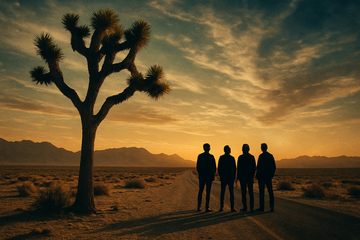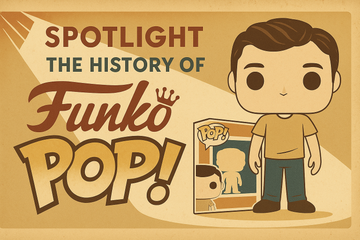When U2 released The Joshua Tree on March 9, 1987, they didn’t just drop another album
— they captured the spirit of a generation. But the story behind this legendary record is as
powerful as the songs themselves: a tale of searching, transformation, and fearless
ambition.
At Elevation Music, we’re proud to celebrate U2's incredible journey to this masterpiece — a
journey that changed not just their destiny, but the face of rock music forever.
From Dublin Streets to Global Stages
By the mid-1980s, U2 was already a rising star. Albums like Boy, October, War, and The
Unforgettable Fire had built their reputation as a band of passion and principle, combining
soaring anthems with a deep sense of purpose. Yet, despite their success, U2 felt restless.
They hadn’t yet made the album — the one that would define them.
Coming off the ethereal, experimental soundscapes of The Unforgettable Fire, produced by
Brian Eno and Daniel Lanois, U2 wanted their next record to feel bigger, sharper, and more
grounded. They weren’t chasing trends. They were chasing something deeper: a sound that
felt timeless, rooted in reality but reaching for transcendence.
America: Myth and Reality
Much of the inspiration for The Joshua Tree came from Bono’s growing fascination with
America — not just the bright lights and promises, but the contradictions, the struggles, and
the hidden stories. During trips with his wife Ali, and the band’s manager, Bono witnessed
the beauty and the brokenness of the American experience.
This wasn’t blind patriotism. It was a nuanced view, seeing both the "promised land" and the
injustices hiding in its shadow. Civil rights struggles, the plight of Central America, and
political corruption — these themes would all weave their way into the new songs.
America became both a symbol and a mirror: a place of hope, heartbreak, and hard truths. It
wasn’t about America alone — it was about the human condition itself.
Finding a New Sound
The recording sessions for The Joshua Tree were intense, stretching from mid-1986 to early
1987. With Brian Eno and Daniel Lanois once again behind the console, U2 pushed
themselves harder than ever before.
They stripped back the synth-heavy textures of The Unforgettable Fire and leaned into raw,
primal sounds. The Edge’s guitar work became more spacious and atmospheric, using echo
and reverb not to decorate the songs, but to carve out emotional landscapes. Larry Mullen
Jr.’s drumming grew more restrained yet powerful. Adam Clayton’s basslines became the
grounding force.
Bono, meanwhile, was writing some of the most vulnerable and passionate lyrics of his life.
He moved away from abstract imagery toward direct, almost journalistic storytelling — yet
without losing the spiritual yearning that had always defined U2’s music.
The Songs That Changed Everything
The songs that emerged from this period would become iconic:
● "Where the Streets Have No Name" captured a yearning for transcendence, a
place beyond divisions.
● "I Still Haven’t Found What I’m Looking For" became a hymn of restless spiritual
searching.
● "With or Without You" explores the ache of love and commitment, balancing
intimacy and isolation.
● "Bullet the Blue Sky" brought raw political anger, inspired by Bono’s trip to El
Salvador during the civil war.
● "Mothers of the Disappeared" mourned the victims of oppression in Latin America,
sung in hushed tones of reverence and outrage.
The Joshua Tree: A Monument in Music
When The Joshua Tree was released, it was immediately clear that U2 had achieved
something extraordinary. The album went straight to No. 1 in over 20 countries, won the
Grammy for Album of the Year, and made U2 the biggest band in the world.
But more importantly, it became a cultural touchstone — a record that gave voice to hopes
and doubts, to dreams and disillusionments, not just in America but everywhere.
The image of the lone Joshua Tree standing resilient in the desert became a perfect
metaphor for the album’s spirit: enduring, searching, reaching toward something greater.
A Lasting Legacy
Almost four decades later, The Joshua Tree still resonates. Its themes of spiritual longing,
political awareness, and emotional honesty feel just as vital today. It’s not just an album; it’s
a journey — a pilgrimage through the deserts of our world and the landscapes of our souls.
At Elevation Music, we believe that U2’s road to The Joshua Tree wasn’t just about writing
songs. It was about daring to dream bigger, to go deeper, and to create something that
would stand the test of time.
In doing so, U2 didn’t just find what they were looking for. They helped generations of
listeners find it, too.






